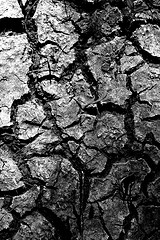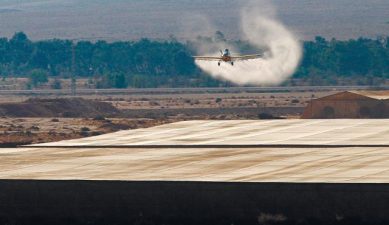A review on the cover of this book by Fred Pearce describes it as “a world tour of hydrological madness” (Sunday Times), and that, in a nutshell, is exactly what it is.
For those who want to understand what happens to the world’s water supply and where it comes from, whether you live in or are interested in the Middle East, the UK, India, Pakistan, China or any number of countries and continents, dive in and swim deep of the situations and facts: if you are a despairing, cynical sort, you still need to read this book and get armed with the facts and figures.
“…mainly about rivers it is also about how we use water: about the quite staggering amount that it takes to feed and clothe us; about how the world trade in food and cotton and much more is also a trade in ‘virtual water’ – the water it takes to grow these crops; and how that implicates Western consumers directly in the emptying of many of the world’s great rivers.”
Fred Pearce, the UK’s leading environmental and investigative journalist, gets to visit people all over the world, stare into the parched, denuded reservoirs and diverted rivers; smell the poisoned, silted-up water that the world’s poorest farmers have to work with, kick over the salt and poisons deposited on parched soil, and reflect dryly upon these scenes for our pitiful benefit. Like his excellent ‘Confessions of an Eco-Sinner’ Pearce gets to follow his nose and his conscience and explore the issues that matter to him, the world over.
But this book is filled with more hard facts than the former – here he deals with the most important tangible product the world has, and uncovers how we misuse and abuse it – whether taking too much and draining reserves, or going to war to safeguard or grab it.
From wetlands to man-made rivers and dying rivers
In a section about the Fenland region of Britain, which resonated because it is close to where I grew up, Pearce details the bloody human history that cleared this vast area of natural wetland, to great human and ecological cost:
“Such efforts result in huge public expenditure that wrecks natural eco-systems of staggering fecundity in order to generate private profits that are puny by comparison with the former common wealth.”
A later chapter details the recent efforts to restore the Iraqi wetlands post the removal of Saddam, and his destructive megalomania against people and ancient resources.
In breathtaking leaps, Pearce takes the reader to visit man-made rivers in Libya (created from the huge Nubian aquifer) and Turkmenistan, where other crackpot schemes to divert natural resources and glorify their creators gleam in the desert…. until they start to dry up. (British and American engineers are also culpable in these projects, too).
Pearce has researched probably the world’s worst ‘deliberate’ water disaster: in 1938 Chinese generals ordered the blowing up of a large dyke at Huayuankon, to try to repel the invading Japanese forces. This act backfired. The Yellow River took its own course, which caused “floods and famine, and ultimately….the death of 890,000 Chinese.”
The ‘virtual water trade’ uses about 1,000 cubic kilometres of water annually, or the equivalent of 20 River Niles, if that is easier to visualize.
Farmers, planners and politicians the world over have mercilessly plundered rivers to grow these crops, and such legendary and crucial rivers such as the Indus, the Nile, the Mighty Rio Grande – now “reduced to a sluggish brown trickle”; Australia’s River Murray, the Mekong, as well as the Jordan are all a shadow of their former selves.
But the list continues: the Aral Sea, Lake Chad in Nigeria; all great bodies of water that only in the 20th Century, with the advent of Industrialisation and the global commercialisation of agriculture, have begun to silt up, reduce, and diminish.
“The world grows twice as much food as it did a generation ago, but it abstracts three times more water from rivers and underground aquifers to do it.”
Water as both a weapon and as an instrument of peace: Israel and the Palestinian Authority
Pearce is a regular visitor to Israel: I recently accompanied him on a trip to the Negev to research Bedouin issues for a forthcoming book about population and its environmental impact.
He has been examining water issues here for many years, and has interviewed at length all the hydrologists and players on all sides.
Pearce has highlighted the existence of ancient springs and wells in the West Bank, and how crucial these are to sensible water consumption, as well as how poisoning wells and indeed the occupation of the West Bank keeps the prospect of peace in a stranglehold.
He wearily notes “whatever the politics, the hydrology will not wait.”
Finding a solution to more equitable sharing of the coastal aquifer, as well as healthy water access in Gaza, and an immediate curtailing of the exporting of the water sucked from the River Jordan for agriculture (Friends of the Earth Middle East runs tours to examine water issues in the Jordan Valley which I highly recommend – contact their Tel Aviv office for more information) are some of the many pressing water issues facing us, and which Pearce dives into in this book.
But he is not a doomsayer, and he highlights the tremendous advances in desalination pioneered in Israel, and Michael Evenari’s discovery of Nabatean rain harvesting techniques in the Negev, and how these can be used to everyone’s advantage in the modern age. The section of the survival of the world’s oldest spring; Elisha’s Spring near Jericho which was and is “the reason for Jericho’s existence” I found fascinating, particularly after understanding it in context of other failed early agro-civilisations:
“many grander civilisations have come and gone in the Middle East, many of them based on apparently more sophisticated methods of catching and manipulating water.”
Here on Green Prophet we know how crucial water is to the emotional and environmental health of this region – search the site and you will discover thousands of posts and up to date information, shared during our short history – and we know how important it is to unpick the politics of water, and seek the wettest possible future for all striving to live here.
Pearce picks up on the political differences between the then (2006) Israeli water Commissioner Shimon Tal and many Israeli hydrologists, such as Arie Issar: “who has always preached careful use [such as desalination and recycling of treated sewage onto farmland] and sharing of the regions water.’’
Our future: wet or dry
It really is as stark as that. Pearce has gone to great lengths to show the reader what has gone wrong with our civic and personal attitude to water use the world over, and by highlighting some of these diminishing or dried up water sources, we must rethink our actions.
This book is not a simple manual for the consumer to simply be less wasteful in the home and repair leaky taps, though this is important too. These are not facts and case studies presented for us to write to our MPs or MKs and demand equitable water justice with, though of course that is one way of affecting change.
There are many options for change and careful water capture and conservation presented here – ironically many of them are old techniques that have been ignored and bypassed. Regaining our respect for the power of water and our ancient river ways is one urgent step.
I appreciate Pearce’s dogged research and writing because he teaches me something new: learning about ancient Qanats across the Middle East, Central Asia and north Africa is fascinating, as is the phenomena known in the UK as dewponds, which capture moisture from the air. They made me think of turloughs which can be found in Ireland – often small lakes which come with the wet seasons and disappear again just as quickly.
Pearce takes the reader to new places, which are often generally inaccessible, and peppers his text with reflection, often presenting both the micro and the macro view almost at the same time.
This is crucial investigative journalism that the world needs to heed.
“Science may come up trumps again. But without a second agricultural revolution that targets water, a ‘blue revolution’, then the gains of the past generation could be wiped out as rivers run dry, underground water reserves are exhausted and fields are caked in salt.”
‘When the Rivers Run Dry – what happens when our water runs out’
By Fred Pearce 2006 www.booksattransworld.co.uk/eden
Coming soon: an exclusive Green Prophet interview with Fred Pearce recorded in Jerusalem March 2009!





I read Fred Pearce's book in the summer of 2007. Regarding swhat it said about Pakistan in Chapter 4, I very recently read an old book: “The Road to Huddersfield: A Journey to Five Continents” by James Morris (Pantheon, 1963) – about the World Bank investments at that time. The following is interesting in the context (pages 206 – 207):”It is extraordinary how quickly the ethos of empire has faded, how soon the satraps have lost their accents and the streets their commemorative names, as the whole edifice of a discredited idea crumbles into limbo. When the British look back upon their years of climax they may well think of the Indus, which came relatively late in their imperial career, as the apex of their achievement, the very best of the things they did. More than anything, perhaps, the application of water to the growing of food is a memorial of the great civilizations. When the Babylonian empire disintegrated, so too did the marvelous waterworks of Iraq, and the Land of the Twin Rivers decayed into ignominious squalor. Whenever a weak pharaoh governed Egypt, he let the canals silt up and the irrigation devices rot. If the United States withers at last, I suspect that the tremendous riverworks of the West will longest be admired as physical evidence of her genius. Bismarck, wishing to express his opinion of the freckless Irish, once suggsted that they should change places with the Dutch: the Dutch would soon make Ireland a prosperous republic, and the Irish would presently let the Dutch dikes leak and drown themselves. Thus the mesh of canals in the bowl of the Pubjab expresses the energies of the British at their strongest and most self-controlled , far more effectively than any tattered battle flag or stately home.”
Fred Pearce is well-placed to review books too – here is a link to his recent review of several recent books looking at climate change:
http://www.guardian.co.uk/books/2009/may/09/scienceandnature-climate-change
A fascinating review of what sounds like a fascinating and crucial book. I don’t normally read non-fiction, but I think I might have to read this one before it is the concept of water that becomes fictional.